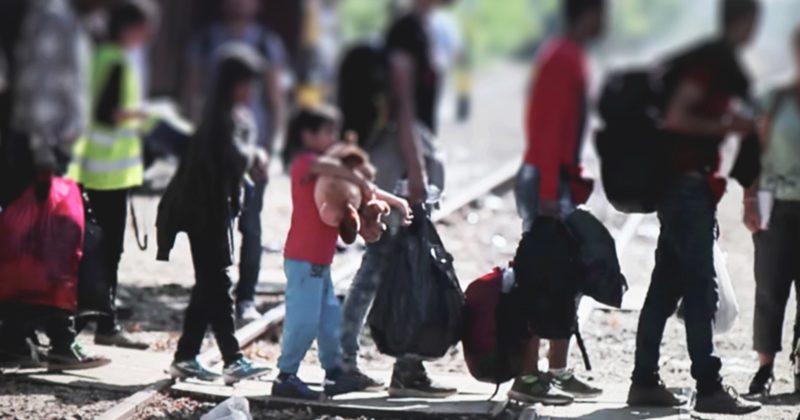The Covid-19 pandemic has had devastating and potentially lasting consequences for the rights of refugees. Movement restrictions and border closures made it difficult for refugees to access their rights, while some states used the pandemic as an excuse to introduce restrictive measures that harm refugees. Even though some of these measures were initially introduced for public health reasons, they have since been retained or even strengthened as security measures.

The pandemic challenged the capacity and willingness of states to live up to their international responsibilities and obligations, and is likely to continue to disproportionately affect the most vulnerable, especially those forcibly displaced from their homes.
Assessing the global response to protect refugees
To investigate the effectiveness of international cooperation and the combined response of organisations in protecting refugee rights during the pandemic, Itad and Valid Evaluations conducted a joint evaluation of the protection of fundamental rights of refugees during Covid-19.
The evaluation, which took place from 2021-22 examined the responses of host states, United Nations agencies, non-governmental and civil society organisations, and refugee-led organisations. It encompassed issues such as access to healthcare, vaccines, asylum child protection and gender-based violence.
Our report provided vital insights into the challenges that refugees faced during the pandemic, and confirmed with clear evidence that some states have used the pandemic as a purported justification to introduce restrictive measures detrimental to the rights of refugees. Our recommendations aimed to improve coordinated global responses in the future, ensuring that the needs of asylum seekers are better integrated into policy and programme development.
The evaluation was commissioned under the auspices of the Covid-19 Global Evaluation Coalition and funded by the UN High Commissioner for Refugees (UNHCR), the Government of Finland and the OECD DAC Evaluation Network Secretariat.
Influencing UN humanitarian agencies and global humanitarian practice
The evaluation had rapid impact. In May 2022, the President of UNHCR, Filippo Grandi, used our evaluation as evidence for his statement calling states to lift remaining restrictions on asylum. In a UNHCR press release, he said:
I appeal to the states that continue to maintain these restrictions to lift them urgently, in order to enable people to seek safety and protection, I am worried that measures enacted on the pretext of responding to COVID-19 are being used as cover to exclude and deny asylum to people fleeing violence and persecution, COVID-19 cannot be an excuse to ignore the law and refugee rights.
The evaluation report brought the issue of protecting and safeguarding asylum seekers to the forefront of discussions in various humanitarian and development organisations. One such example was in July 2022, when the Chair of OECD DAC and the Assistant Secretary General of UNHCR discussed the evaluation findings and their implications with policy makers, governments and refugee organisations at a high-level learning event hosted by ALNAP.
Findings from the evaluation were also referenced in the State of the Humanitarian System Report 2022, which is the longest-running evidence base on the performance of the humanitarian system and an important resource for organisations working in the humanitarian sector.
Commenting on the value of the evaluation during the ALNAP event, Klauss Lindroos of Finland’s Ministry of Foreign Affairs said:
This report will help us both as a donor and a Government to highlight the need to ensure that refugee rights will be respected when situations are rapidly changing […] and that whatever restrictions are introduced they must also be based on and in compliance with legal obligations.” […] This report will help us to prepare for future situations, be they pandemics or global level crises.
Future impact
If the evaluation’s findings and recommendations are implemented in future policies and emergency programmatic responses, it will be of significant benefit to around 30 million refugees and asylum seekers, more than 80% of whom live in low- and middle-income countries with weaker health systems and pre-existing humanitarian crises.
The evaluation’s identification of restrictions that prevented asylum seekers from seeking refuge under the guise of pandemic precautions is concerning, and addressing these issues through the implementation of best practices and policies could help to prevent similar situations from arising in the future.
Download our report, executive summary, and brief to learn more about the evaluation findings and recommendations.
This impact story was developed by Helena MatosDaCosta of Itad’s Research Analyst Programme.

